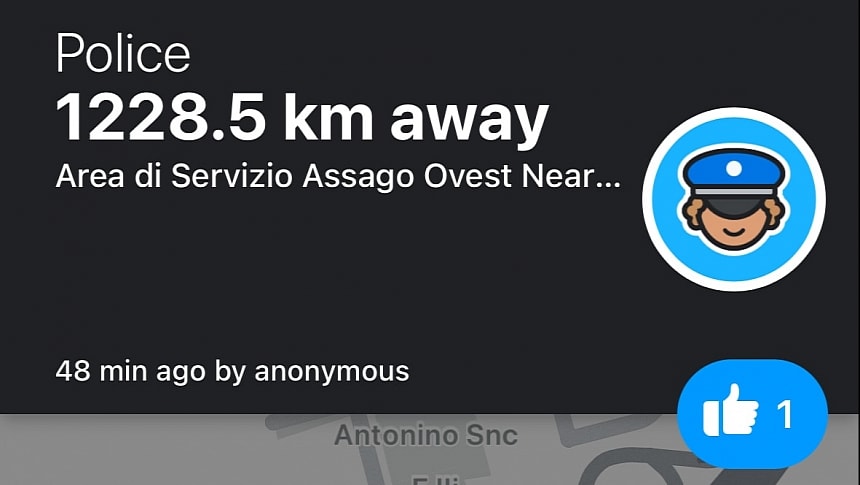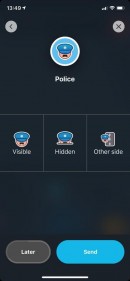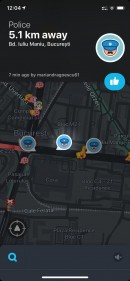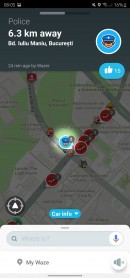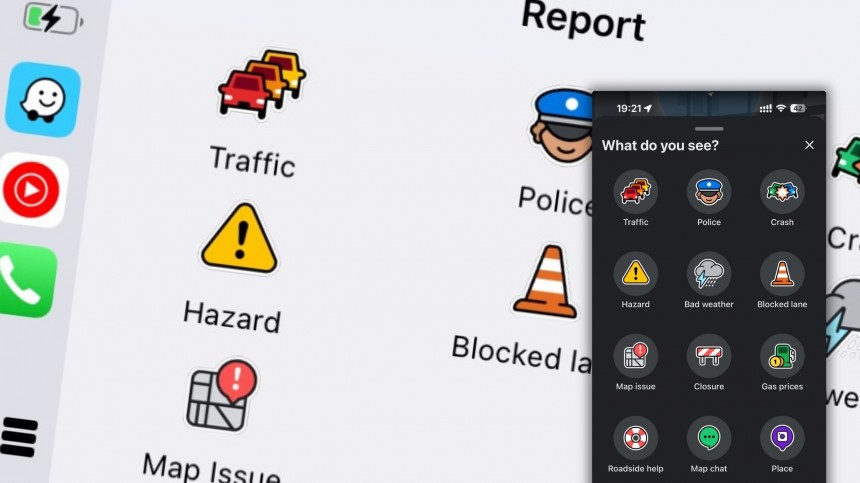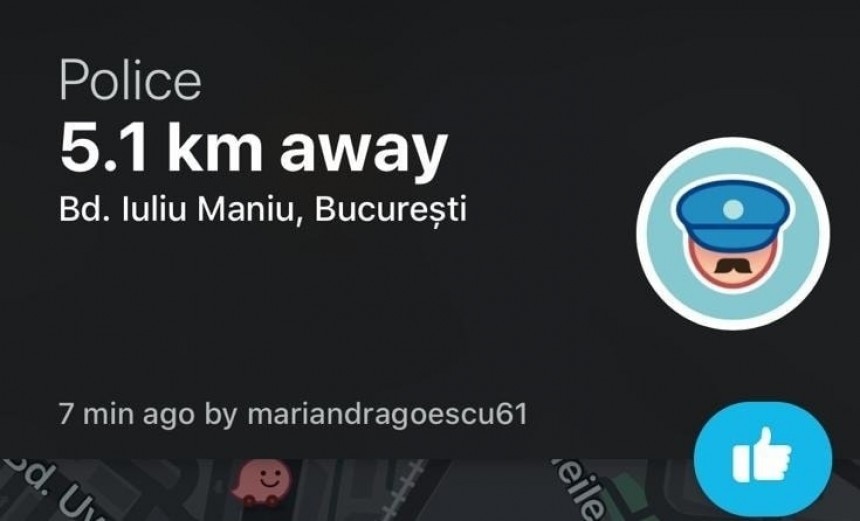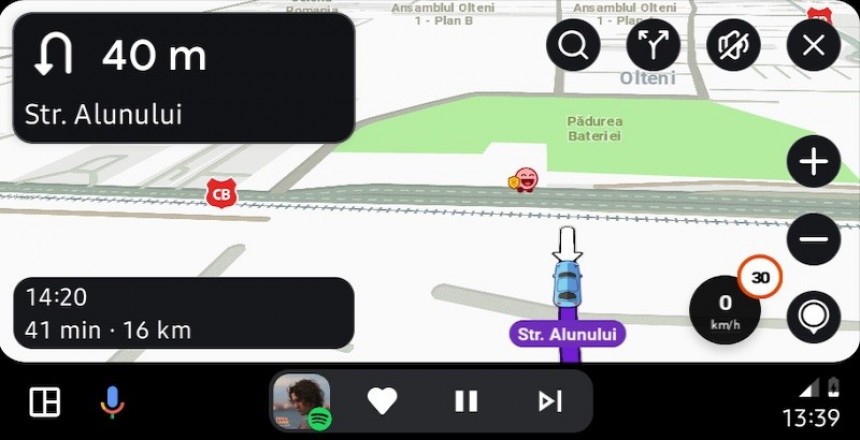If you believe the debate regarding the integration of police reports in Waze is over, you are so wrong. However, today's subject has nothing to do with the pros and cons of this feature because we all know how that goes (a few more tidbits on that later, though).
This time, we'll be talking about a different subject. Like you and me, cops are drivers, not only when they're on duty but also in their free time. They drive to the supermarket, they drive to work, they drive everywhere where you do. They leave on vacation, and like everybody else, they could get a fine (I know what you're thinking, stop it) for breaking the law.
As a result, Waze can become a valuable weapon in their modern arsenal, too, if they use it, of course. As we learned not long ago, police also use Waze, so now, it's time for the big question: do cops report other cops on Waze?
Sean Shapiro, a police officer with the Toronto Police Service, is here to set things straight.
Basically, the question comes down to this scenario. A police officer is in their free time running errands when they spot a police car on the side of the world. Do they pin the location of the police car on Waze or not?
Shapiro explains that it all depends on what the police officers on the side of the road do. If they work on the road for anything like accident investigations or road closures, police officers always mark other police officers on Waze. The answer is as simple as possible: a police report on Waze makes drivers slow down and pay more attention to the road. The goal here is not to avoid getting a ticket but to reduce speed and keep the police officers on the road safe.
Police officers who are doing enforcement shouldn't be marked on the map. Shapiro says that the purpose of enforcement is to catch criminals, whether pulling someone over, arresting them, or issuing a ticket. By pinning police enforcement on the map, you'd eliminate the element of surprise, letting everybody know where the officers are located.
This time, the reasons for people slowing down are different. Speedsters would reduce speed because they don't want to get fined, while criminals trying to run away from the cops would avoid the area where the officers were tagged.
Shapiro says cops don't report cops doing enforcement on Waze.
Basically, the answer to the big question in the headline comes down to a simple approach that everybody could use. If a police officer is working on the road (not sitting on the side or in the car with a radar gun), cops report other cops on Waze. If the police officer is doing enforcement, including operating a speed trap, cops don't report other cops on Waze.
While many people would agree with Shapiro's reasoning, other police officers worldwide have a different opinion and call for users to pin them on Waze even when doing enforcement.
The Ontario Provincial Police is the best example. The local police officers recently took to Facebook to discuss this sensible topic, telling users that flagging them on the map supports their mission. "If you use Waze, please mark us on the map," they say.
The post goes on to explain that a Waze speed trap report makes drivers slow down. A police report wouldn't last long without a speed trap on the side of the road (because Wazers would spam the "not there" button), so police claim that speedsters would reduce the speed at least for the duration of the enforcement.
The Ontario Provincial Police explains that the purpose of every police action is to increase traffic safety, not necessarily to fine drivers. Issuing tickets could help people not make the same mistake again (or, as it typically happens, not in the same place), but a warning telling them that the police are there makes them slow down.
Like Shapiro, others call for a more efficient use of the police report in Waze. The Sherborn Police Department recently commented on this controversial subject, explaining that while a police report could make people slow down, it could also allow a criminal to escape enforcement. The officers claim that the people seeing a police report on Waze could be criminals, serial speeders, or drivers who shouldn’t be behind the wheel, and using your information, they can avoid getting caught.
The controversy will likely continue, but Waze has no intention of removing the feature unless authorities specifically ask for it based on local regulations.
Which side are you on? How should we all use the police reports in Waze?
As a result, Waze can become a valuable weapon in their modern arsenal, too, if they use it, of course. As we learned not long ago, police also use Waze, so now, it's time for the big question: do cops report other cops on Waze?
Sean Shapiro, a police officer with the Toronto Police Service, is here to set things straight.
Basically, the question comes down to this scenario. A police officer is in their free time running errands when they spot a police car on the side of the world. Do they pin the location of the police car on Waze or not?
Police officers who are doing enforcement shouldn't be marked on the map. Shapiro says that the purpose of enforcement is to catch criminals, whether pulling someone over, arresting them, or issuing a ticket. By pinning police enforcement on the map, you'd eliminate the element of surprise, letting everybody know where the officers are located.
This time, the reasons for people slowing down are different. Speedsters would reduce speed because they don't want to get fined, while criminals trying to run away from the cops would avoid the area where the officers were tagged.
Shapiro says cops don't report cops doing enforcement on Waze.
Basically, the answer to the big question in the headline comes down to a simple approach that everybody could use. If a police officer is working on the road (not sitting on the side or in the car with a radar gun), cops report other cops on Waze. If the police officer is doing enforcement, including operating a speed trap, cops don't report other cops on Waze.
Police: Please mark us on Waze!
As I told you earlier in my story, integrating police reports in Waze is a long-time subject that has already created never-ending controversy, including in the law enforcement world.While many people would agree with Shapiro's reasoning, other police officers worldwide have a different opinion and call for users to pin them on Waze even when doing enforcement.
The Ontario Provincial Police is the best example. The local police officers recently took to Facebook to discuss this sensible topic, telling users that flagging them on the map supports their mission. "If you use Waze, please mark us on the map," they say.
The post goes on to explain that a Waze speed trap report makes drivers slow down. A police report wouldn't last long without a speed trap on the side of the road (because Wazers would spam the "not there" button), so police claim that speedsters would reduce the speed at least for the duration of the enforcement.
Like Shapiro, others call for a more efficient use of the police report in Waze. The Sherborn Police Department recently commented on this controversial subject, explaining that while a police report could make people slow down, it could also allow a criminal to escape enforcement. The officers claim that the people seeing a police report on Waze could be criminals, serial speeders, or drivers who shouldn’t be behind the wheel, and using your information, they can avoid getting caught.
The controversy will likely continue, but Waze has no intention of removing the feature unless authorities specifically ask for it based on local regulations.
Which side are you on? How should we all use the police reports in Waze?
